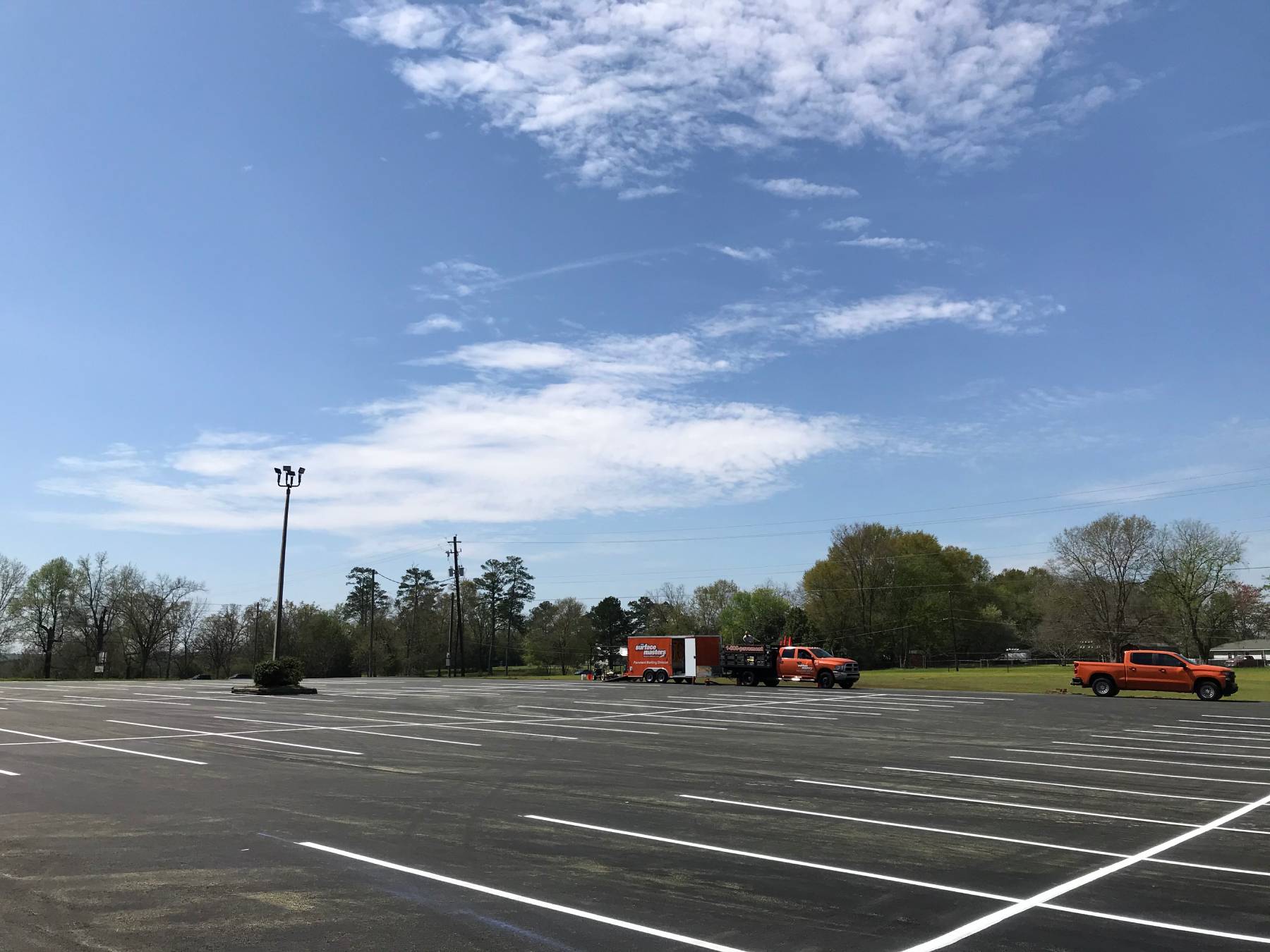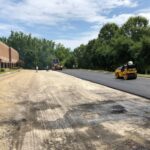If you live in North Georgia, you have likely noticed an abundance of asphalt parking lots, boulevards, highways, and other types of asphalt paving. You have also noticed that rain is abundant as well, with Atlanta averaging more than 50 inches spread over more than 115 days. If you combine the popularity of asphalt with the likelihood that there will be approximately 2.2 days of rain every week, it is easy to see why contractors are often asked whether they can install asphalt in the rain. Typically, contractors will not attempt to pave in the rain, and they will not attempt to pave if an earlier storm has left the ground saturated.
Why Would an Atlanta Asphalt Contractor Refuse to Perform Asphalt Paving in the Rain?
The main problem with paving in the rain is the issue of quality. Most asphalt companies in Atlanta care about their reputations, and providing customers with an unsightly and damaged pavement that will have a painfully short life is not the way to build or protect a good reputation in the competitive world of commercial paving.
Why Does Performing Asphalt Paving in the Rain Result in an Inferior Pavement?
Asphalt is a petroleum distillate, so it contains oils that do not easily combine with water. In fact, these oils are excellent water repellants, so when rain falls on uncured asphalt, the curing process is delayed so that the oils can migrate to the surface and repel the water. Once an asphalt pavement is sufficiently cured, it will be remarkable strong and resilient. However, until then, it can be pitted or cracked by the pressure exerted by the falling raindrops, and the rain can also cause the asphalt to cure unevenly or too rapidly. Initially, the pits and cracks in your new pavement may seem trivial, but they are extremely likely to evolve into potholes or more severe cracks. There is a good chance that your new pavement will need to be repaired almost immediately, and you are sure to be disappointed in its appearance as well.
Why Would an Atlanta Paving Contractor Refuse to Pave Immediately After a Heavy Rain?
Reputable, experienced paving contractors know that the key to a long-lasting, attractive asphalt pavement is proper compaction of the asphalt as well as the underlying soil. Waterlogged soil is too soft to be compacted properly. Furthermore, depending on the composition of the soil, it can shrink or shift as it dries, and this can also compromise the stability of the pavement’s base layers. This can result in subsidence, potholes, or alligatored asphalt. Repairing the base layers can be a costly procedure that requires ripping out your new pavement over the damaged area to rebuild the base, and it may also require addressing issues with the compaction of the soil. Typically, an asphalt paving company will not install a new pavement until the underlying soil is deemed sufficiently dry.
If You Have Paving Questions, Trust The Surface Masters for Answers
The Surface Masters is a locally owned paving company with an impeccable reputation for delivering superb results and exemplary service on every job. We offer an extensive range of parking lot maintenance and commercial paving services, including asphalt resurfacing and paving, asphalt sealcoating, asphalt crack repair, concrete installation, and concrete repair. We have the staff, experience, and equipment to handle jobs of all sizes efficiently and economically. For a free quote, fill out the online request form, email Info@TheSurfaceMasters.com, or call 770-250-6392.


